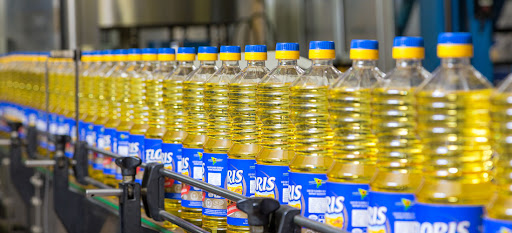Filling machinery is a crucial component in the packaging industry, specifically designed to fill various products efficiently. It can be classified into different categories based on automation level and the type of material being packaged. Semi-automatic filling machines and automatic filling production lines are the two main types of filling machinery, with the latter being more advanced in terms of automation. Additionally, filling machinery can be further categorized into liquid filling machinery, paste filling machine, powder filling machine, and granule filling machine, depending on the nature of the product being filled.

In recent times, there has been a growing emphasis on product quality and packaging due to the QS certification requirements in the food industry. As a result, oil filling machinery has gained significant importance in the field of filling machinery. To ensure optimal performance and longevity of filling machinery, it is essential to follow certain steps and methods for maintenance and upkeep.
Daily Maintenance:
Before starting work each day, it is crucial to observe the pneumatic combination of the moisture filter and oil mist. If there is an excessive accumulation of water, it should be promptly drained. Similarly, if the oil level is low, it should be refilled timely. This step helps prevent any potential damage to the machinery caused by moisture or insufficient lubrication.
Regular Inspections:
During the production process, it is advisable to frequently patrol and observe the mechanical parts of the filling machinery. Check if the rotation and lifting mechanisms are functioning correctly without any abnormalities. Also, ensure that all screws are tightly secured and not loose. These regular inspections help identify any issues early on, preventing potential breakdowns or accidents.
Ground Wires and Contacts:
It is important to frequently check the equipment ground wires and ensure that they meet the required contact requirements. A reliable ground connection is crucial for the safe operation of the filling machinery. Additionally, it is recommended to clean the scale regularly to prevent any buildup that may interfere with the proper functioning of the machine. Furthermore, inspect the pneumatic pipeline for air leaks and verify that there are no ruptures in the air pipes.
Motor Lubrication:
The reducer motor used in filling machinery requires annual replacement of lubricating oil (grease). It is also essential to check the chain tension and adjust it as necessary to prevent any wear and tear. Proper lubrication and tension maintenance extend the lifespan of the motor and ensure smooth operation.
Pipeline Emptying:
If filling machinery is not in use for an extended period, it is advisable to empty the materials from the pipeline. This step prevents any potential blockages or contamination when the machinery is restarted.
Cleaning and Sanitation:
Maintaining cleanliness and sanitation is vital for ensuring high-quality production. Keeping the surface of the filling machinery clean helps prevent any contamination or spoilage of the product being filled. Regularly remove any accumulated material on the scale to maintain optimal performance. Additionally, pay attention to keeping the electronic control cabinet clean to prevent any interference with its functions.
Sensor Care:
Filling machinery often incorporates high-precision sensors that require careful handling. These sensors have a high sealing degree and sensitivity, making them susceptible to impact and overload. It is strictly prohibited to touch or disturb these sensors during their work process. Non-maintenance purposes should not allow disassembly of these components.
In conclusion, proper maintenance and upkeep of filling machinery are crucial for ensuring high-quality and cost-effective production. By following the steps and methods outlined above, enterprises operating in the food, pharmaceutical, and daily chemical industries can prolong the lifespan of their filling machinery while minimizing downtime and costs associated with malfunctions or breakdowns. Regular inspections, cleaning, lubrication, and attention to detail are key factors in maintaining optimal performance and safety in filling machinery operations.